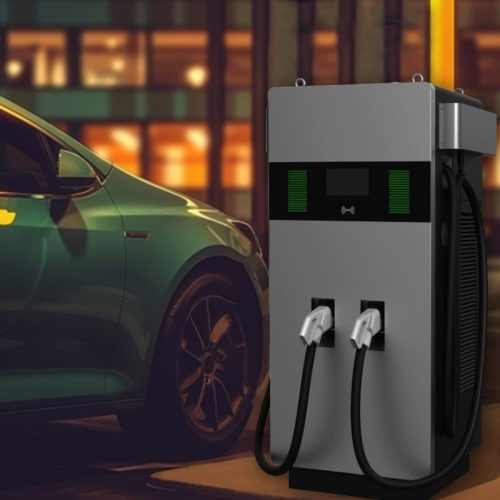
Benefits of Innovative EV Charging Technology for Electric Buses
In recent years, driven by the urgent need to reduce carbon emissions and climate change, electric buses have shown compelling potential to be environmentally, economically, and sustainably friendly with their unique benefits – a groundbreaking innovation in public transport. In addition to this, a key factor is the EV charging infrastructure.
Against the backdrop of the rapid development of electric vehicles, the development of charging infrastructure has become crucial. EV charger providers have come up with clean and efficient charging solutions for electric buses. This article delves into the benefits of adopting electric buses and explores the definition, benefits, and challenges of pure electric buses.
What is an electric bus?
An electric bus is a public transport vehicle that runs entirely on electricity. Unlike conventional buses, electric buses rely on energy stored in electric motors and onboard batteries and usually require an electric vehicle charger to power them. Electric buses are equipped with high-capacity lithium-ion batteries that store electrical energy that is used to power the vehicle’s electric motor.
Benefits of electric buses
1. Promoting environmental protection
Electric buses are powered by batteries, eliminating the problem of tailpipe emissions from conventional internal combustion engine vehicles. This means that carbon monoxide, nitrogen oxides, and other harmful substances are not produced during traveling, effectively reducing air pollution. This has a positive impact on improving urban air quality, reducing respiratory diseases, and enhancing the quality of life of residents.
As electric vehicles do not rely on burning fossil fuels, they emit significantly less greenhouse gases. This helps combat climate change and global warming and makes a positive contribution to environmental protection. Especially when the source of electricity is renewable, the environmental benefits of pure electric vehicles are even more prominent.
2. Lower energy costs
Electricity is often cheaper than conventional fuel, giving pure electric vehicles an advantage in terms of energy costs. While electric vehicles may be more expensive to purchase, in the long run, they have a lower cost per mile traveled, helping to save money.
3. Low maintenance costs
Electric buses are typically powered by electric motors, which are simpler and have fewer powertrain components than traditional internal combustion engine vehicles, resulting in lower maintenance costs. EVs do not require complex mechanical components such as liquid cooling systems, exhaust systems, and conventional transmissions, reducing maintenance frequency and costs.
Benefits of innovative EV charging technology for electric buses
Innovations in EV charging station technology offer many benefits for electric buses that are driving the sustainability of urban transport systems and the popularity of electric buses. The following are some of the advantages that innovative technologies have brought:
1. Fast charging technology improves efficiency
Fast charging technology enables electric buses to complete the charging process more efficiently. Using DC fast charging stations (DCFC), electric buses can fully charge their batteries in a short period of time, thus minimizing charging dwell time. This highly efficient charging method allows electric buses to operate more flexibly and improves the transport efficiency of the entire transport system.
2. Intelligent charging management system improves the reliability of the charging network
Intelligent charging management systems improve the reliability of charging networks by monitoring, optimizing, and scheduling the charging process of electric buses in real time. Such a system can dynamically adjust the use plan of electric vehicle charging piles according to the usage of electric buses and the status of batteries, ensuring that vehicles have enough power when needed and improving the stability of the entire charging system.
3. Integration of renewable energy sources reduces environmental impacts
Some EV charger manufacturers have come up with innovative charging solutions where they integrate renewable energy sources into the charging process, such as solar and wind power. Such EV chargers not only reduce the reliance on conventional energy sources for the charging process but also reduce the overall environmental impact of electric bus operations. By adopting clean energy sources, electric bus operations will be more environmentally sustainable.
Conclusion:
Overall, pure electric buses have become an important transport equipment for urban public transport with many advantages such as no tailpipe emissions, low energy consumption, and low maintenance costs. Fast charging technology as an innovative charging solution proposed by electric vehicle charger distributors makes electric bus charging more convenient. The application of intelligent charging management systems improves the reliability of the charging network, while the integration of renewable energy further reduces the environmental impact. In the future, more innovative EV charging technologies will bring more convenience, efficiency, and environmental protection to urban transport systems.
Read Dive is a leading technology blog focusing on different domains like Blockchain, AI, Chatbot, Fintech, Health Tech, Software Development and Testing. For guest blogging, please feel free to contact at readdive@gmail.com.
